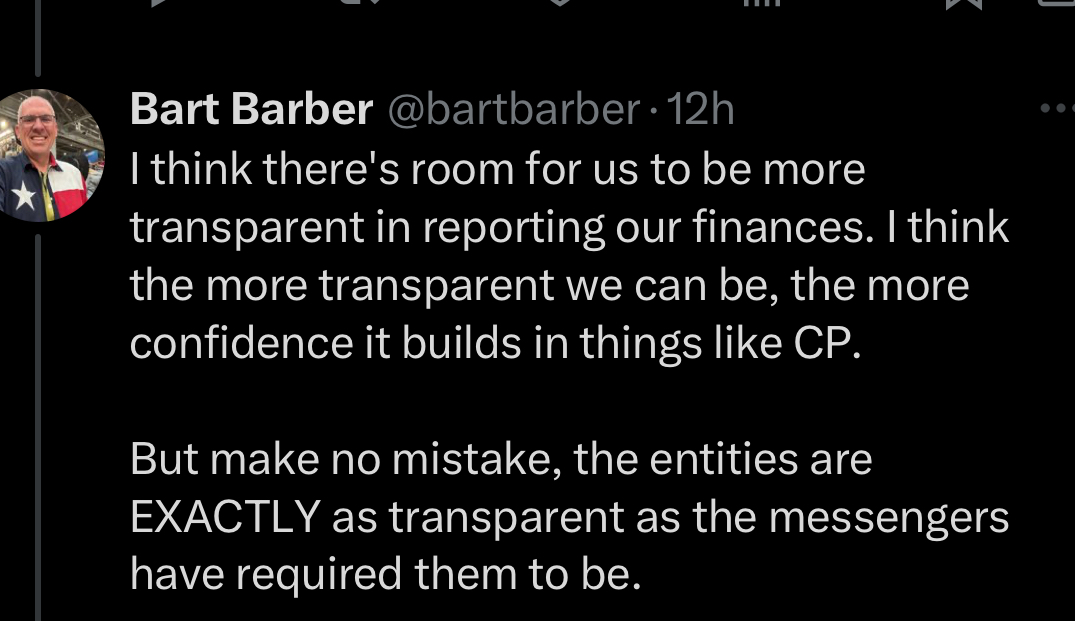What @bartbarber says here is true, but it only tells part of the story.
Yes, I lost the vote to overrule the decision of the chair. That’s what you’ll find in the minutes.
But the realpolitik of the situation fills out the story. 1/
Yes, I lost the vote to overrule the decision of the chair. That’s what you’ll find in the minutes.
But the realpolitik of the situation fills out the story. 1/
https://twitter.com/bartbarber/status/1888824678086488329
Rarely does the messenger body overrule the chair. That means, a motion can get referred to the EC & never see the light of day.
The reason I offered the '24 motion was because a similar motion I made in 2023 was referred to the EC, where it was killed in the finance committee.
The reason I offered the '24 motion was because a similar motion I made in 2023 was referred to the EC, where it was killed in the finance committee.
Messengers were explicitly denied an opportunity to vote on 990-level financial transparency. It is not that messengers were given the choice and voted against it; rather, they were denied an opportunity to even hear the arguments.
So, I was given a vote on overruling the chair, but I was not allowed to speak as to why I was asking for that.
That’s not the whole story either. The finance committee was originally scheduled to take up my motion at the September 2023 EC meeting. I was invited to speak, but that invitation was rescinded. I was told the committee had postponed discussion of my motion until February.
However, during the September meeting, the committee invited the entity heads to discuss the 990 motion. They were given the opportunity to speak first about the motion and to “cross-examine” it before I was ever given the opportunity to speak to it.
Later, Paul Chitwood, addressed IMB trustees on the matter and his remarks were reported in Baptist Press. Those remarks were filled with misrepresentations and falsehoods about what the motion required.
So, it’s not quite as simple a situation as Bart would have you believe. There are many factors at play. The odds are against a messenger’s efforts to bring reform. I don’t mean that as an excuse or an accusation, but as a realistic assessment of how things really work.
Bart further says that entities “are EXACTLY as transparent as the messengers have required them to be.” That is just not true. For example, both @NAMB and @IMB_SBC have refused to comply with Article 14 of the Business and Financial Plan. 

Messengers have required them to disclose their salary structures, but they will not do it.
What should messengers who care about transparency do? Show up in Dallas and vote for it. That will likely mean voting through some red tape to even have a chance at voting on transparency, and so comes prepared to vote that way, too.
The appetite for financial transparency isn’t going away. It’s only getting stronger. We will get it, sooner or later. And the SBC will be much healthier for it. As trust is restored in the SBC, our Great Commission partnership will be strengthened.
• • •
Missing some Tweet in this thread? You can try to
force a refresh




